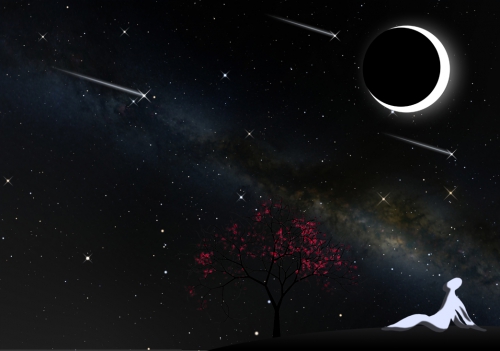
Summer Stargazing Nights - CLOSED
- Where:
- Frosty Drew Observatory and Science Center
- When:
- Fri, Jun 14, 2024 - CLOSED
- Cost:
- This Event is Cancelled
Welcome to the Frosty Drew Summer Stargazing Nights! Every Friday night (weather permitting) we open our Observatory, Science Center, Sky Theatre, and telescopes to the sky and offer free stargazing and astronomy to anybody interested in observing with us.
After a fabulous week of clear sky conditions, clouds and rain will move in just in time to crash our celebration. We can expect overcast conditions with rain setting in shortly after 6:00 pm. The First Quarter Moon occurred at 1:18 am this morning, and would have given us stunning views of the cratered lunar terrain as well as potentially the Lunar X and Lunar V. Regardless, it will be a dismal night at Frosty Drew, so we are staying closed this week and will see you next on Friday, June 21, 2024. We’ll see you then!
Be sure to subscribe to the Frost Drew Observatory mailing list and follow us on Instagram to receive status updates about our Stargazing Nights program and more.
Take a moment to catch up on some space happenings this week in:
A Celebration of Space - June 14, 2024
Preparing for Your Visit:
Check out our page on Visiting Frosty Drew Observatory to learn more about what to expect at the Observatory and better help you prepare for your visit.
Read about our Observatory Dome Access Passes, which are available on a first come first serve basis.
How to Prepare for Springtime Conditions: The Frosty Drew Observatory is located inside Ninigret Park and borders the Ninigret National Wildlife Refuge. Insects and arachnids are a concern when visiting the Frosty Drew campus. We have observed mosquitoes, green head flies, deer flies, ticks, biting ants, and more. Please read the Mosquitoes and Insects section on our Visiting the Observatory page to familiarize yourself with adequate preparation measures.
Please note that we do not allow any white lights on our campus from dusk - dawn. This is to ensure an equally awesome view of the night sky for all and to allow for the use of light sensitive astronomical equipment. Learn more about why we have this requirement in The Red Light District.
